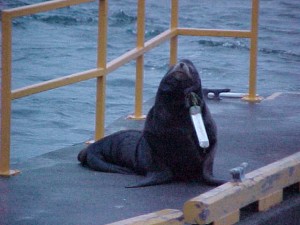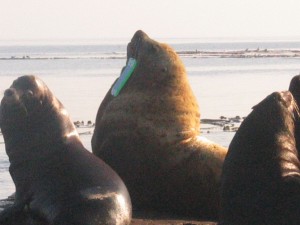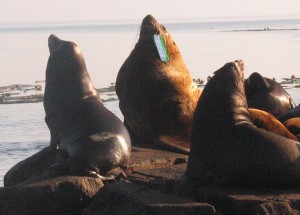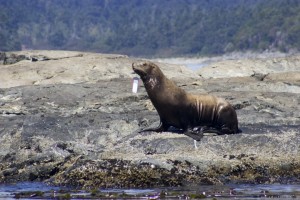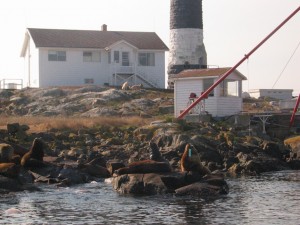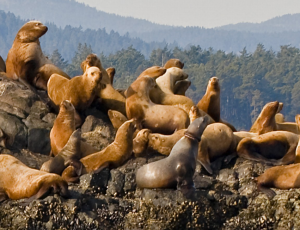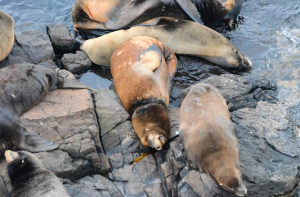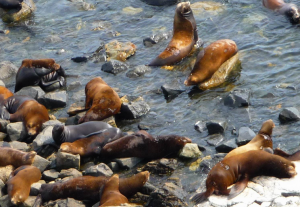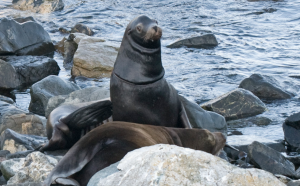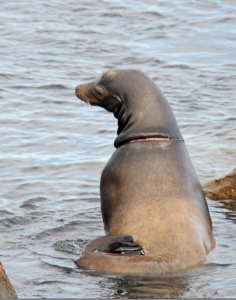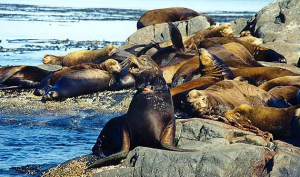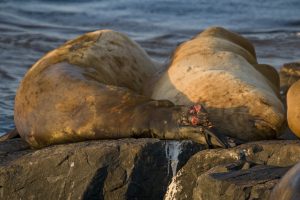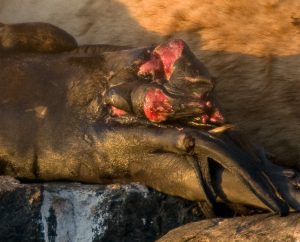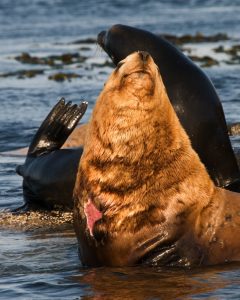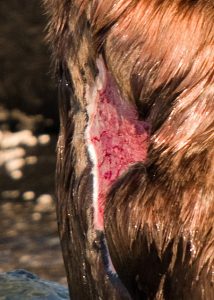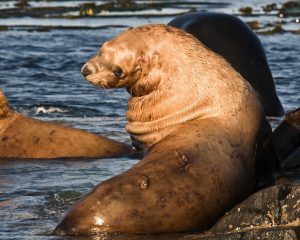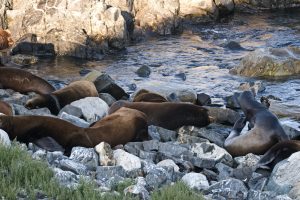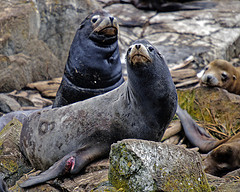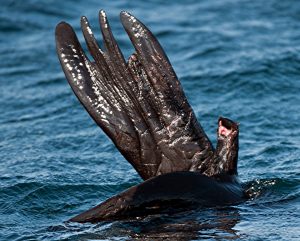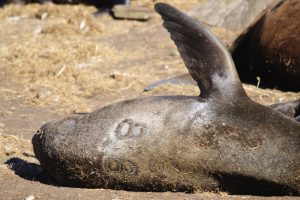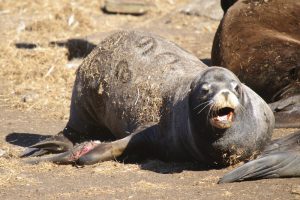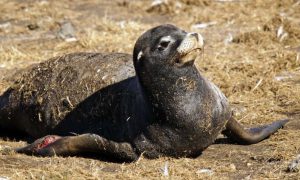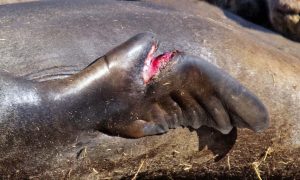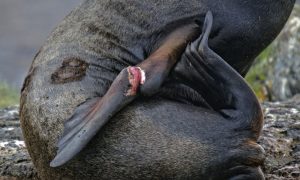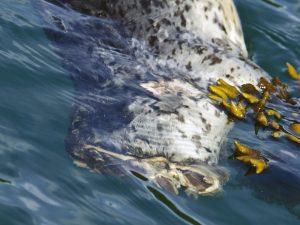In this post we have put together many of our references to the impacts that humans have inflicted on our California and Steller or northern sea lion population which hauls out at Race Rocks. It includes images of fishing flashers and entanglement in commercial fishing gear, especially plastic net-binding hoops, as well as examples of strikes by boats which have injured sealions, often resulting in limb amputations. It is our hope that the fisher community can be more aware of how harmful their actions or negligence can be on marine mammal populations.
FISHING FLASHERS:
We see this event all too often at Race Rocks. Fishers must take responsibility for removing fishing gear from the water when marine mammals are nearby. Not only is it expensive to loose equipment, the impact on these sea lions is uncertain. If the animal succeeds in breaking the leader for the flasher, then the animal only has to contend with the hook down in the stomach. It is not known how this effects sea lion mortality.
Entanglement in Commercial Fishing Plastic bindings on Nets.
This section shows plastic neck rings from commercial fishing nets around the neck of a sea lion.
Please write your Fisheries governing departments to request that all plastic bands used in the fishing industry for binding fish nets by made of biodegradable material.
| This northern (steller’s) sea lion showed up on Middle Rock in February of 2009 . Note the ridge formed by the ring toward the head end. Photo by Ryan | two neck rings and three brands appear in the same photo from the tower. GF | |
These two tags will bring up the other posts on Marine mammal Injuries and Entanglement.
See other photos from the excellent collection of Ryan Murphy on Flickr
Kimberly L. Raum-Suryana, , , Lauri A. Jemisonb, Kenneth W. Pitcherc
Elsevier: Volume 58, Issue 10, October 2009, Pages 1487–1495
Abstract
Entanglement in marine debris is a contributing factor in Steller sea lion (SSL; Eumetopias jubatus) injury and mortality. We quantified SSL entanglement by debris type, sex and age class, entanglement incidence, and estimated population level effects. Surveys of SSL haul-outs were conducted from 2000–2007 in Southeast Alaska and northern British Columbia. We recorded 386 individuals of all age classes as being either entangled in marine debris or having ingested fishing gear. Packing bands were the most common neck entangling material (54%), followed by rubber bands (30%), net (7%), rope (7%), and monofilament line (2%). Ingested fishing gear included salmon fishery flashers (lures: 80%), longline gear (12%), hook and line (4%), spinners/spoons (2%), and bait hooks (2%). Entanglement incidence was 0.26% (SD = 0.0064, n = 69 sites). “Lose the Loop!” Simple procedures such as cutting entangling loops of synthetic material and eliminating the use of packing bands can prevent entanglements.
BOAT STRIKES:
As the Northern (Steller) and California sea lions started to return to Race Rocks in the fall of 2009, Ecoguardian Ryan Murphy noticed what may be a significant increase in the number of encounters they have had with humans. Ryan took these pictures at the time.
- ” I cannot say for certain that it was one of the boats in the reserve that mangled this animal’s hind flipper,
- however, boat traffic in the reserve consistently gets too close to marine mammals both in and out of the water.” RM Aug 23,2009
- A gash on the chest
- The origin of this is difficult to say, perhaps a whale, shark or boat prop
- Boat prop scars on the back of this individual.
- Close up of the wound.
- Sept 26,2009 This california sea lion has a bad wound to the flipper.
- A decapitated harbour seal.
